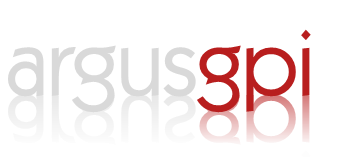COVID-19 and the Balkans: Navigating conspiracy theories and geopolitics
By NewsTeam - City of London (Remote)
www.GEOPoliticalMatters.com
The Atlantic Council’s Future Europe Initiative and the Balkans in Europe Policy Advisory Group (BiEPAG) host a discussion on the disruptive role of conspiracy theories amid COVID-19, geopolitical competition in the Western Balkans, and the implications for Euro-Atlantic integration.
Join the Atlantic Council’s Future Europe Initiative and the Balkans in Europe Policy Advisory Group (BiEPAG) on Thursday, December 10 from 11:30 a.m. to 12:30 p.m. EST / 17:30 hrs – 18:30 hrs CET for the launch of a new report, “The suspicious Virus: Conspiracies and COVID-19 in the Balkans.” The event features leading regional experts who conducted research in the Western Balkans six to discuss how the COVID-19 pandemic reinforced geopolitical competition in the region, the disruptive role of conspiracy theories, and the implications for Euro-Atlantic integration.
As the Western Balkans six confront the COVID-19 crisis, the virus has given rise to new conspiracy theories that erode trust in public health initiatives and democratic institutions. Despite breakthroughs in vaccine development around the world, conspiracies threaten to undermine government efforts to curb the virus and complicate the dissemination of important information. Such conspiracies also reinforce existing geopolitical preferences and heighten anti-Western narratives, leading to an uncertain future for the Balkans and its role in the transatlantic community at a critical time.
Join us for a timely discussion as experts explain the basis for COVID-19 conspiracy theories in the Balkans and outline recommendations for policymakers and stakeholders to restore public trust in order to navigate the current crisis.
Featuring
Dr. Dimitar Bechev
Non-resident Senior Fellow, Eurasia Center, Atlantic Council; Director, European Policy Institute, Sofia
Dr. Florian Bieber
Coordinator
Balkans in Europe Policy Advisory Group (BiEPAG)
Dr. Dejan Jović
Professor of International Relations, Faculty of Political Science
University of Zagreb
Dr. Tena Prelec
Research Fellow, Department of Politics and International Relations (DPIR)
University of Oxford
Moderated by
Mr. Tim Judah
Balkans Correspondent
The Economist
About Atlantic CouncilShaping the global future together
Driven by our mission of “shaping the global future together,” the Atlantic Council is a nonpartisan organization that galvanizes US leadership and engagement in the world, in partnership with allies and partners, to shape solutions to global challenges. Find out more about us below.
The Atlantic Council promotes constructive leadership and engagement in international affairs based on the Atlantic Community’s central role in meeting global challenges. The Council provides an essential forum for navigating the dramatic economic and political changes defining the twenty-first century by informing and galvanizing its uniquely influential network of global leaders. The Atlantic Council—through the papers it publishes, the ideas it generates, the future leaders it develops, and the communities it builds—shapes policy choices and strategies to create a more free, secure, and prosperous world. More/...
Organized in partnership with


_128.png)


_128.png)
